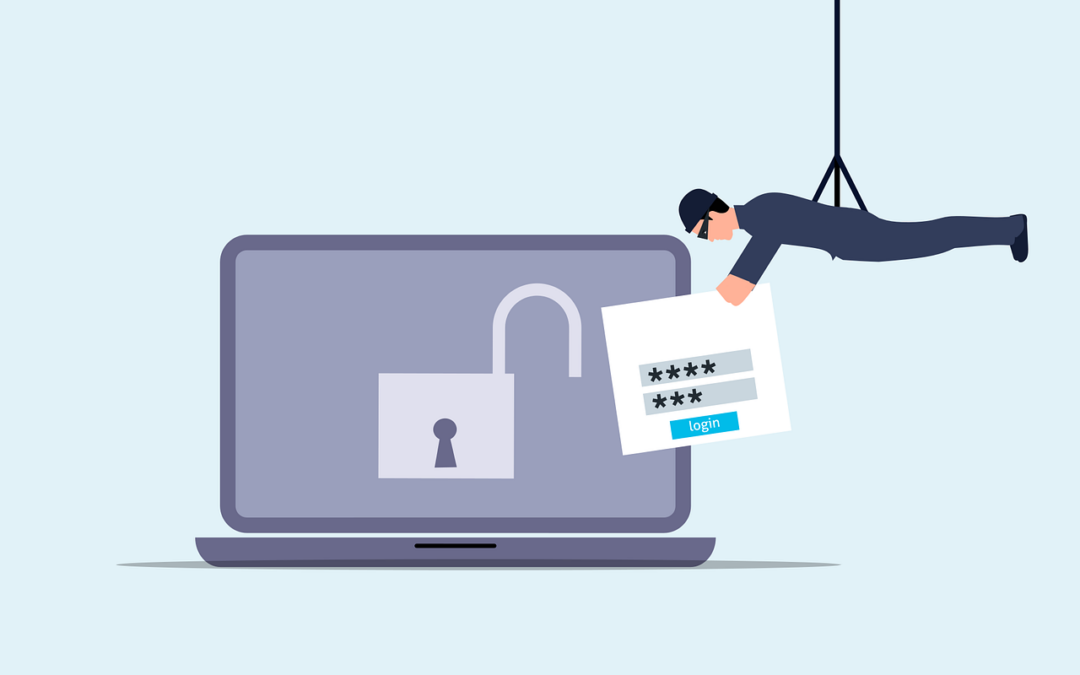Data breaches can harm your business. Whether you are an estate agent in Stoke on Trent or a manufacturing company in Stafford a breach can cost you money and trust. Let’s look at how to stop them from happening either by yourself or with the assistance of Quietly Confident Technology.
What is a data breach?
A data breach is when someone steals information. This can be names, emails, or credit card numbers. It’s bad for your customers and your business.
Why should you care about data breaches?
Data breaches are bad. They will cost you in both time and money. Perhaps your customers will stop trusting you. You may even be fined. It is vital to try to prevent them from occurring in the first place.
How do you prevent a data breach?
Here are 10 steps to help keep your data safe. Some of them are easy to do by yourself, others might require a bit of assistance from your friendly neighbourhood IT firm… QCT… Contact us if you have any questions:
1. Use strong passwords
This is a no brainer right? Use long, complex passwords that are hard to guess. Include letters, numbers, and symbols. Use a different password for each of your accounts. This is the bit where we bang the password manager gong again (I do that a lot!). If you don’t have one then go look at Bitwarden.
2. Update your software
Always update your computer programs. Updates usually patch security holes. Have your computer set to update automatically. If you are a managed services customer with QCT then we will already be all over this for you. We monitor both your operating system (windows / mac) and the applications you have installed and make sure everything is up to date and secure.
3. Train your employees
Educate your employees on data security. Teach them how to identify fake emails. Inform them to not click on suspicious links. As part of a QCT support package we supply some awesome employee training material.
4. Use encryption
Encryption scrambles your data. Only people who have a special key can read it. Use encryption on important information. Having your data encrypted both “at rest” – when it’s stored on your computer and “in flight” – when it’s moving, eg as an email is key to making sure prying eyes can’t see it.
5. Limit access to data
Not everyone needs to know everything although people often think that they should! Only give people access to what they need for their specific role. In the event that you DO have a problem, this will limit the extent of the breach.
6. Create backups of your data
Technically this does not prevent a breach. Keeping proper SECURE backups does however help if during a breach a bad actor destroys or encrypts your data. See our recent article about Ransomware for an example of when this might be handy!
7. Use a firewall
A firewall acts like a guard for your computer. It blocks the bad things from getting inside. Always turn the firewall on.
8. Be careful with emails
Almost every data breach starts with a trick email. Don’t open emails from people you don’t know. Never click on links unless you are sure that they are safe.
9. Protect your Wi-Fi
Use a strong password on your Wi-Fi and don’t just go sharing it around with everyone. If you want to allow none business owned (and properly secured) devices onto the internet then you should setup a separate wireless network for people to use. Do not leave the default password on. It might also be worth considering a Zero Trust approach and isolating your corporate network behind a VPN.
10. Have a plan
Prepare a plan if, in case of a data breach. Know whom to contact and what you should do. Do a practice drill so you are ready if there is an intrusion. Disaster Recovery Plans and Business Continuity plans are key to knowing how to respond.
Even with good plans, data breaches can still happen. If one does, take action quickly. Inform your customers about the breach ASAP.
Fix the problem that led to the breach. Then, use what you learned from that mistake to make your security better.
At what frequency is security checked?
CONSTANTLY. A decent IT company will be continually monitoring your systems and keeping an eye on what’s going on. If you don’t have an IT support team on side (erm… call me….) then you should look over things at least once a month. There are new dangers all the time. Keep informed about the most up-to-date ways of keeping the data safe.
Can small businesses be targets for data breaches?
Yes, small businesses can be targets too. Actually, most hackers target small businesses. They perceive their security level to be low. Whatever the size, make sure your business is prepared. The problem is that they don’t make the headlines so you don’t know that it’s happening.
How much does it cost to prevent a data breach?
The per user costs to keep on top of this sort of thing are low when compared to costs associated with recovery and the cost to ongoing business and reputation. Many companies have managed to weather the initial data breach issues but have then failed 12 or 24 months later as the reputation damage caused falling sales. Consider this as insurance for your data; thus, the cost is well worth keeping your business safe.
Stay Safe and Secure
Data safety is very important; it keeps your business and customers safe. Take these steps to prevent data breaches. Always be on guard against new threats. If you need help, ask an expert (Like me for example!). I can make sure your data stays safe.
Don’t wait until it’s too late. Start protecting your data today.
—


Recent Comments